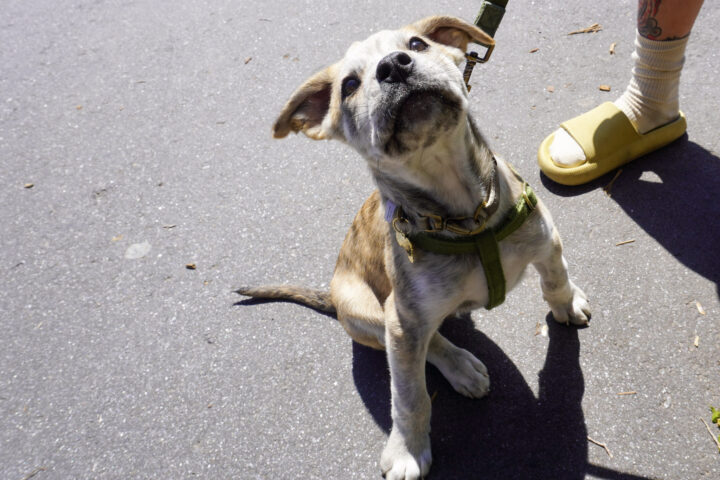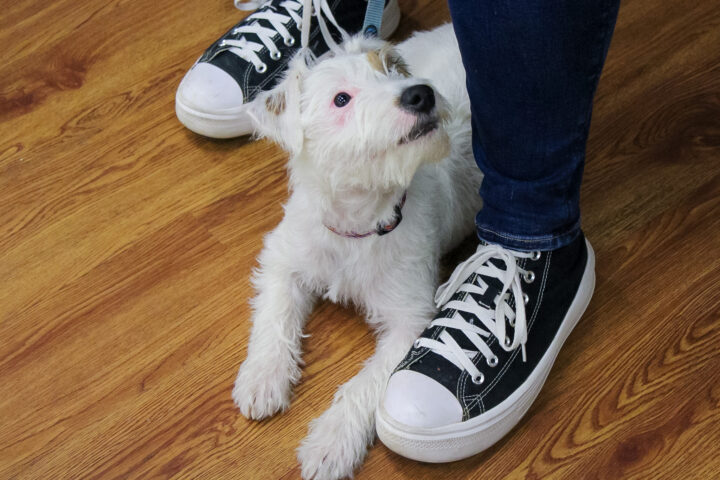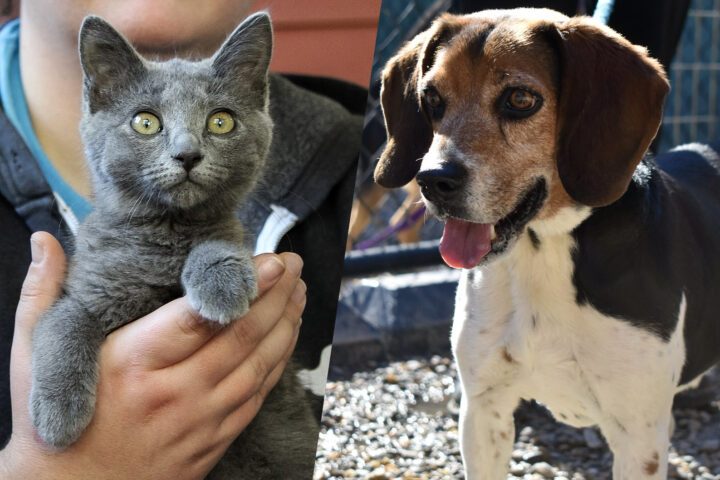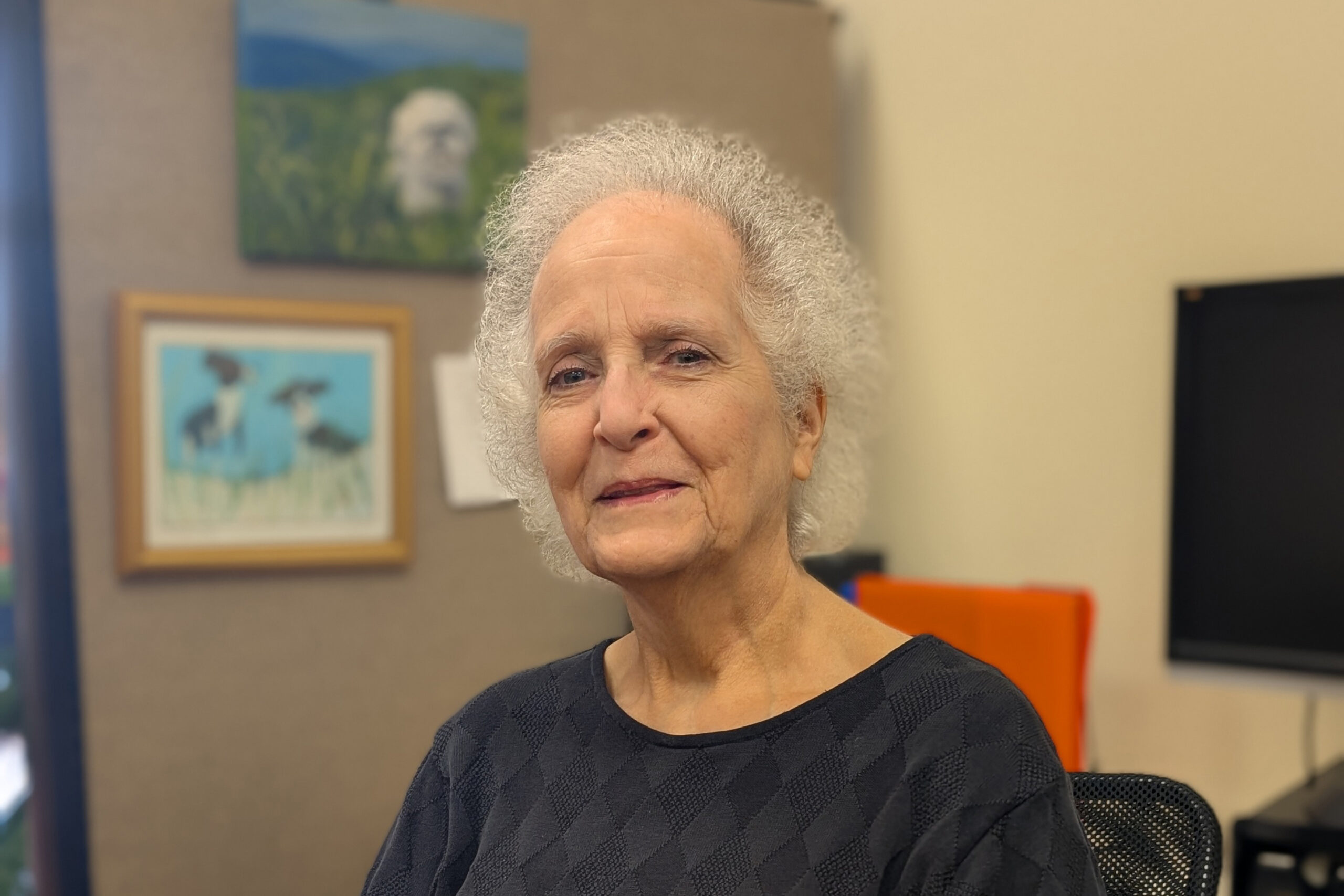Finding the right person for your pet’s behavior problems can be overwhelming. How do you know that the information you receive is accurate or that the person has the education, certification, and animal science background to help you?
These are the 6 most common animal professionals to help you make the right decision.
Certified Applied Animal Behaviorist (CAAB)
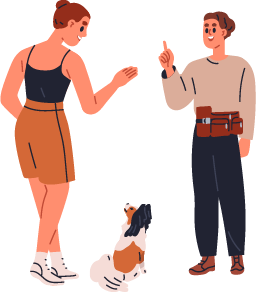 This person will have a graduate-level education (Masters or Ph.D.) in the field of animal behavior. CAABs possess graduate-level education in ethology, learning theory, comparative psychology, psychology, biology, zoology, animal science, and experimental design, with a minimum of 3–5 years of experience. There are a variety of specialties available, including dogs, cats, birds, ferrets, horses, rabbits, and rodents. The Animal Behavior Society is a professional organization for the study of animal behavior and certifies CAABs at the Associate level (Masters degree) or Full (Ph.D. or veterinarian with at least 5 years of clinical experience).
This person will have a graduate-level education (Masters or Ph.D.) in the field of animal behavior. CAABs possess graduate-level education in ethology, learning theory, comparative psychology, psychology, biology, zoology, animal science, and experimental design, with a minimum of 3–5 years of experience. There are a variety of specialties available, including dogs, cats, birds, ferrets, horses, rabbits, and rodents. The Animal Behavior Society is a professional organization for the study of animal behavior and certifies CAABs at the Associate level (Masters degree) or Full (Ph.D. or veterinarian with at least 5 years of clinical experience).
Veterinary Behaviorist (DVBM)
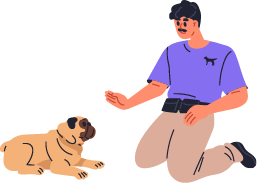 A Doctor of Veterinary Behavior Medicine is a veterinarian with advanced education in the field of animal behavior (a minimum of 2-year residence under the guidance of a board-certified veterinarian) and is professionally certified by the American College of Veterinary Behaviorists. A Veterinary Behaviorist is knowledgeable in psychopharmacology. For more information, visit the American Society of Veterinary Animal Behavior.
A Doctor of Veterinary Behavior Medicine is a veterinarian with advanced education in the field of animal behavior (a minimum of 2-year residence under the guidance of a board-certified veterinarian) and is professionally certified by the American College of Veterinary Behaviorists. A Veterinary Behaviorist is knowledgeable in psychopharmacology. For more information, visit the American Society of Veterinary Animal Behavior.
Canine Behavior Counselor/Behavior Consultant (CDBC for dogs or CCBC for cats)
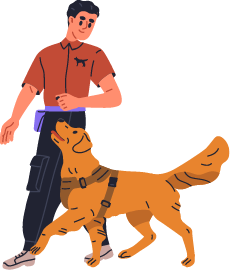 A Behavior Counselor or Behavior Consultant is not the same as an Applied Animal Behaviorist or Veterinary Behaviorist. Behavior Consultants are certified under the International Association of Animal Behavior Consultants. The certification requires a minimum of four years of experience with 500 hours in animal behavior consulting; 400 hours of coursework, seminars, and mentorship; and a working knowledge of learning theory, counterconditioning, desensitization, husbandry, assessment skills, and application of species-specific knowledge.
A Behavior Counselor or Behavior Consultant is not the same as an Applied Animal Behaviorist or Veterinary Behaviorist. Behavior Consultants are certified under the International Association of Animal Behavior Consultants. The certification requires a minimum of four years of experience with 500 hours in animal behavior consulting; 400 hours of coursework, seminars, and mentorship; and a working knowledge of learning theory, counterconditioning, desensitization, husbandry, assessment skills, and application of species-specific knowledge.
Certified Professional Dog Trainer or Certified Canine Behavior Consultant (CPDT or CCBC)
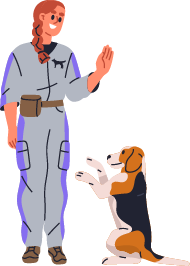 The Certification Council for Professional Dog Trainers (CCPDT) is the leader in the development of rigorous exams to demonstrate mastery of humane, science-based dog training practices. Thousands of dog training professionals worldwide maintain the CCPDT’s certifications as a mark of high professional distinction.
The Certification Council for Professional Dog Trainers (CCPDT) is the leader in the development of rigorous exams to demonstrate mastery of humane, science-based dog training practices. Thousands of dog training professionals worldwide maintain the CCPDT’s certifications as a mark of high professional distinction.
Veterinarian
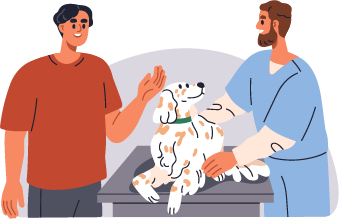 A person with education in the field of veterinary medicine. Their specialty is in the field of medical and/or surgical procedures on animals. Many veterinarians specialize, like medical doctors, in various fields or with specific animals. Typically, you need a small animal practitioner, but many veterinarians work with both large (e.g. horses and cows) and small (e.g. dogs and cats) animals.
A person with education in the field of veterinary medicine. Their specialty is in the field of medical and/or surgical procedures on animals. Many veterinarians specialize, like medical doctors, in various fields or with specific animals. Typically, you need a small animal practitioner, but many veterinarians work with both large (e.g. horses and cows) and small (e.g. dogs and cats) animals.
Dog Trainer
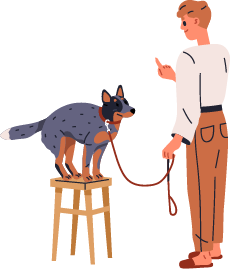 A person who either works directly with dogs or people with the intent of teaching new behaviors or changing existing behaviors. The level of education varies. The years of experience that a trainer has do not necessarily mean that the trainer will be using the most humane and up-to-date training methods or be able to change problem behaviors. Before seeking assistance, it is recommended that you inquire about their methodologies and obtain references. Anyone can call themselves a dog trainer. For the safety and well-being of your pet, do your research before hiring them.
A person who either works directly with dogs or people with the intent of teaching new behaviors or changing existing behaviors. The level of education varies. The years of experience that a trainer has do not necessarily mean that the trainer will be using the most humane and up-to-date training methods or be able to change problem behaviors. Before seeking assistance, it is recommended that you inquire about their methodologies and obtain references. Anyone can call themselves a dog trainer. For the safety and well-being of your pet, do your research before hiring them.
Before making your selection, avoid anyone who “guarantees” that they can “fix” your pet’s problem or that your dog will be “fully trained” after they train your dog. People who guarantee that they can fix your pet’s behavioral issues may either ignore or fail to understand the complexity of animal behavior and how future rewards and punishments will impact your pet. The techniques that a person uses, encourages, and/or recommends can have a long-lasting impact on the relationship you have with your pet for years to come, so it is important to choose a professional wisely.
See also
American Society for the Prevention of Cruelty to Animals (ASPCA)

